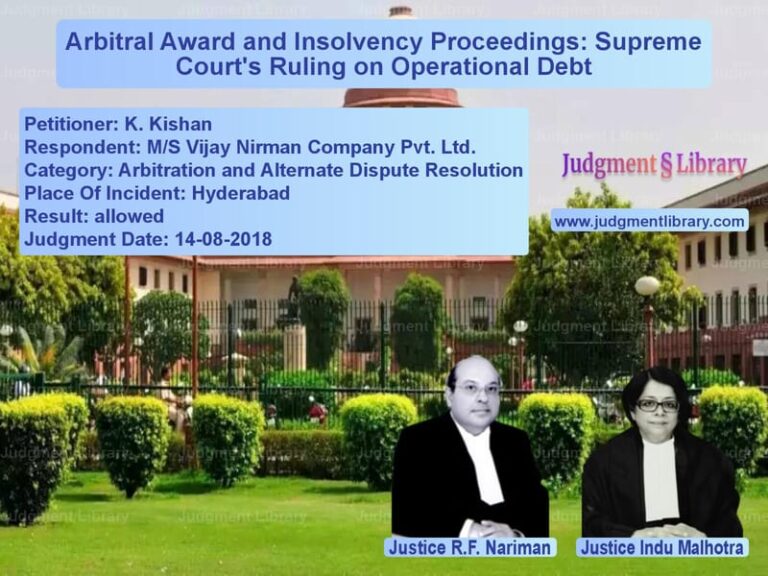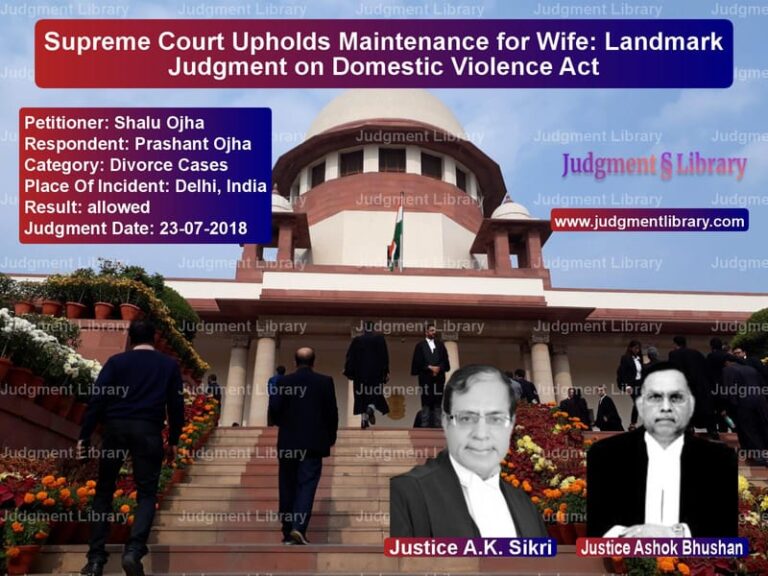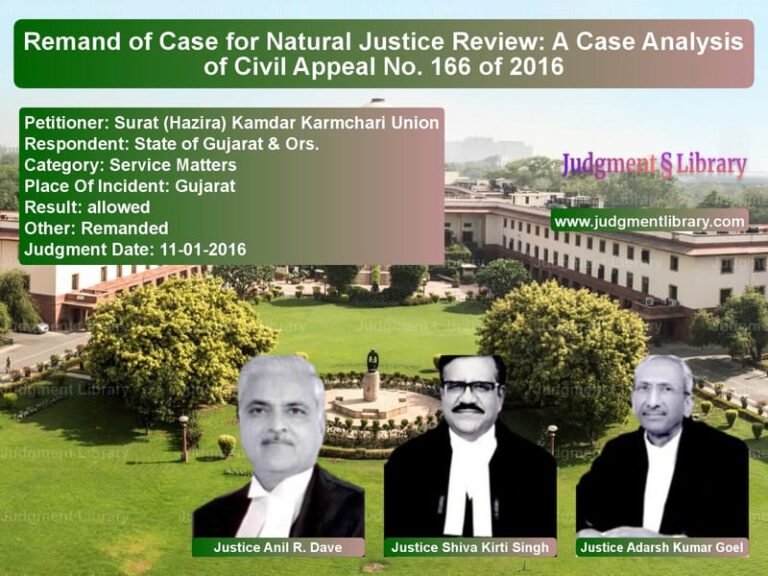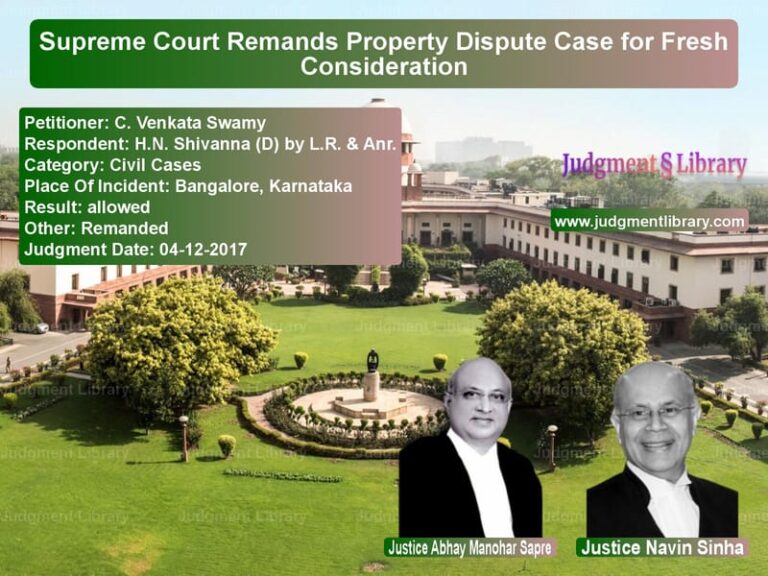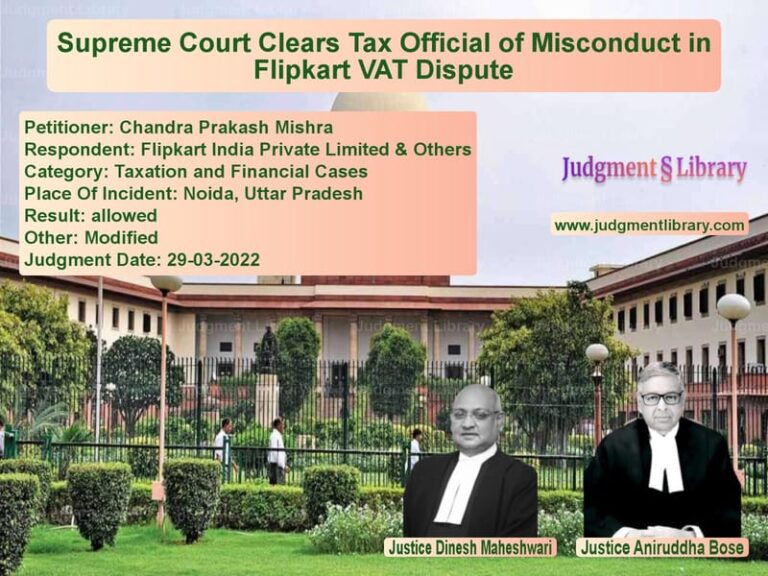Bank Loan Recovery and Arbitration: M. Waseeq Cafetaria vs Union of India
The case of M. Waseeq Cafetaria vs Union of India revolves around a dispute concerning the recovery of dues under the provisions of the Securitization and Reconstruction of Financial Assets and Enforcement of Security Interest Act (SARFAESI Act). The petitioners challenged the steps taken by the respondent bank for recovering outstanding loans, arguing that their case was already under arbitration under the Multi-State Cooperative Societies Act, 2002. The Supreme Court was required to decide whether the bank could continue SARFAESI Act proceedings while an arbitration process was still pending.
Background of the Case
The petitioners, M. Waseeq Cafetaria and others, approached the Supreme Court contesting the actions of the respondent bank, which had initiated recovery proceedings under the SARFAESI Act. The petitioners had unpaid dues, and the bank had taken legal measures to recover the outstanding amount. However, the petitioners argued that the primary issue in contention was the interest payable on the outstanding dues, which was already a subject of arbitration under the Multi-State Cooperative Societies Act, 2002.
Given that the arbitration proceedings were nearing completion, the petitioners sought relief from the Supreme Court to halt the SARFAESI Act proceedings until the arbitration award was issued.
Legal Issues Before the Court
- Whether the bank could continue SARFAESI Act proceedings while an arbitration process was still ongoing.
- Whether the petitioners had an alternative remedy under the Multi-State Cooperative Societies Act, 2002.
- Whether the enforcement of the SARFAESI Act in this case would cause undue hardship to the petitioners.
Arguments by the Petitioner (M. Waseeq Cafetaria)
- The petitioners argued that the core dispute in the case was the interest payable, which was already under arbitration.
- They contended that the bank’s decision to invoke the SARFAESI Act was premature and unnecessary while arbitration proceedings were still pending.
- They sought the Court’s intervention to halt the SARFAESI proceedings until the arbitrator issued a final award.
Arguments by the Respondent (Union of India & the Bank)
- The respondent bank maintained that it had the legal right to proceed under the SARFAESI Act for loan recovery.
- They argued that the arbitration process did not automatically prevent the bank from recovering its dues through legal means.
- The bank asserted that if the arbitration award did not fully satisfy the outstanding loan amount, it would still have to pursue further recovery through SARFAESI.
Supreme Court’s Observations
The Supreme Court carefully reviewed the facts and determined that the primary issue in the case was the interest payable, which was already a subject of arbitration. The Court observed:
“Admittedly, the only surviving grievance is with regard to the interest payable by the petitioners. This is the subject matter of an arbitration under the provisions of the Multi-State Cooperative Societies Act, 2002.”
Furthermore, the Court noted that the arbitrator had requested only one more month to issue the final award. Given this, the Supreme Court reasoned that the bank did not need to continue SARFAESI Act proceedings at this stage.
Final Judgment by the Supreme Court
The Supreme Court ruled:
- The arbitrator was directed to issue the final award within one month from the date of the order.
- The bank was instructed to temporarily halt SARFAESI proceedings until the arbitration award was issued.
- Once the arbitration award was issued, the aggrieved party could seek remedies under Section 34 of the Multi-State Cooperative Societies Act, 2002.
- The writ petitions were disposed of with all contentions left open for future legal proceedings if required.
The Supreme Court concluded:
“In that view of the matter, in the peculiar facts of these cases, it is not necessary at this stage for the respondent-Bank to continue the proceedings already initiated under the SARFAESI Act. The Bank will take the required steps accordingly.”
Analysis of the Judgment
The judgment highlights key principles regarding the enforcement of the SARFAESI Act in cases where alternative dispute resolution mechanisms are already in progress:
- Arbitration and SARFAESI Act: The Court recognized that while the SARFAESI Act grants banks strong enforcement rights, those rights should not be exercised unnecessarily if another dispute resolution mechanism is already addressing the issue.
- Judicial Balance: The Supreme Court maintained a fair balance between protecting the bank’s right to recover dues and ensuring that arbitration proceedings were respected.
- Limited Judicial Intervention: The Court did not rule on the validity of the bank’s claim but instead allowed the arbitration process to conclude before any further legal action.
Conclusion
The ruling in M. Waseeq Cafetaria vs Union of India underscores the importance of allowing arbitration proceedings to take their due course before enforcing coercive recovery measures under the SARFAESI Act. The Supreme Court’s directive to temporarily halt SARFAESI proceedings while arbitration was pending ensures procedural fairness and prevents undue hardship on the petitioners.
The judgment serves as an important precedent for future cases where borrowers seek relief from aggressive loan recovery actions while arbitration or other dispute resolution mechanisms are ongoing.
Don’t miss out on the full details! Download the complete judgment in PDF format below and gain valuable insights instantly!
Download Judgment: M. Waseeq Cafetaria vs Union of India & Ano Supreme Court of India Judgment Dated 10-02-2017.pdf
Direct Downlaod Judgment: Direct downlaod this Judgment
See all petitions in Arbitration Awards
See all petitions in Banking Regulations
See all petitions in Dispute Resolution Mechanisms
See all petitions in Judgment by Kurian Joseph
See all petitions in Judgment by A M Khanwilkar
See all petitions in partially allowed
See all petitions in Stayed
See all petitions in supreme court of India judgments February 2017
See all petitions in 2017 judgments
See all posts in Arbitration and Alternate Dispute Resolution Category
See all allowed petitions in Arbitration and Alternate Dispute Resolution Category
See all Dismissed petitions in Arbitration and Alternate Dispute Resolution Category
See all partially allowed petitions in Arbitration and Alternate Dispute Resolution Category


